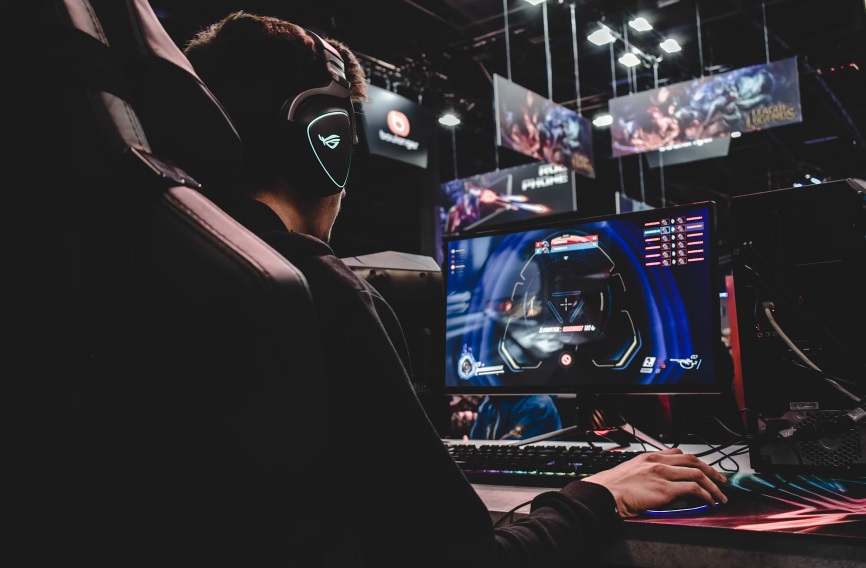Imagine a world where games aren’t confined to a screen. Where dodging fireballs means physically stepping aside, and exploring a jungle involves feeling the humidity on your skin. This isn’t science fiction; it’s the transformative power of virtual reality (VR). VR isn’t just revolutionizing gaming, it’s creeping into various aspects of our lives, reshaping how we learn, train, and even socialize.
From screens to swords – VR’s gaming revolution
In the realm of gaming, VR throws you headfirst into the action. With a VR headset strapped on, you become the hero, wielding swords in medieval battles or soaring through alien landscapes. VR transcends the limitations of a controller. You can now duck, jump, and throw punches intuitively, mimicking real-world movements. Social VR games create virtual spaces where you can hang out with friends, play games together, or even attend virtual concerts.
The educational potential of VR is vast. Imagine exploring the pyramids of Egypt or dissecting a frog in a fully immersive 3D environment. VR field trips can transport students to any corner of the globe, fostering a deeper understanding of history and geography. It can also make complex scientific concepts more engaging and relatable.
Blurring the lines – a world transformed by VR
VR isn’t just about entertainment and education, it’s proving to be a powerful training tool. Surgeons can practice delicate procedures in a safe, virtual environment. Pilots can experience realistic flight scenarios before ever stepping into a cockpit. VR can even be used to treat phobias like fear of heights or public speaking by gradually exposing users to their anxieties in a controlled virtual world.
The world of business is also embracing VR. Architects can showcase designs to clients in stunning 3D, allowing them to virtually walk through a building before it’s even constructed. Real estate agents can offer virtual tours of properties, saving time and resources. VR can even be used for remote collaboration, enabling teams from across the globe to work together in a shared virtual space.
However, VR technology is still in its early stages. Headsets can be bulky and expensive, and some users experience motion sickness. But as technology advances, VR is poised to become more affordable, accessible, and realistic. The possibilities are mind-boggling. Imagine attending virtual conferences from the comfort of your home, or even undergoing virtual therapy sessions. VR has the potential to blur the lines between the physical and digital worlds, creating experiences that were once only dreamt of.
The future of VR is exciting and full of potential. As the technology continues to evolve, it will undoubtedly transform not just gaming, but how we learn, work, and interact with the world around us. So, buckle up and get ready for a reality that’s more immersive than ever before.









